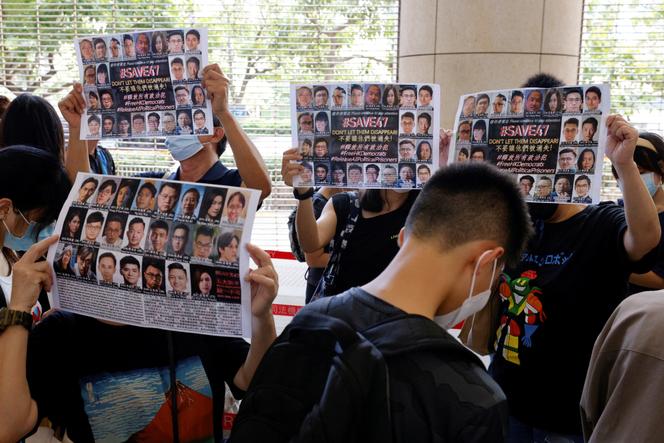

At Hong Kong's major opposition trial, 45 prison sentences and the death knell for political freedom

The hearing in Hong Kong's West Kowloon High Court lasted six minutes on Tuesday, November 19, as sentences were handed down in the trial that wiped out the democracy movement in the city taken over by China. Forty-five ex-party leaders, activists or citizens who had dared to participate in a primary in the summer of 2020, just after Beijing imposed a draconian national security law, crowded into the glassed-in box. They all received prison sentences.
The presiding judge, flanked by two other judges also appointed by a Beijing-controlled government, made it clear that he would not read the 82-page ruling. The roll-top wig and the red and black robe are what remains of the rule of law that was once the pride of Hong Kong. Reading quickly, the magistrate simply listed the numbers of the defendants – without their names – preceded by D for "defendant" and their prison terms: "D1 = 120 months, D2 = 81 months, D3 = 84 months," and so on.
Such was the number of defendants and public interest in this death knell for political freedom that several side rooms had to be opened to accommodate lawyers, families, supporters, committed citizens and the press. The democratic parties had organized this primary in July 2020, in order to maximize their chances of winning seats – which is elsewhere normal politics – in future legislative elections, in an electoral system largely favorable to pro-Chinese candidates. Some wanted, in the event of victory, to block the adoption of budgets, which could end up forcing the local government to resign.
The prosecution and judges saw it as a desire to win the election in order to bring about "a constitutional crisis," thus calling it a "conspiracy with a view to subversion." The former law professor at the prestigious University of Hong Kong, Benny Tai, who was behind the primary, was sentenced to 10 years' imprisonment. He would have received 15 had he not pleaded guilty, the ruling states.
Early repentance during the proceedings, which have dragged on for over three and a half years since a massive bust in January 2021, apparently largely guided sentencing, affecting those who refused to plead guilty to a crime that was then no more than ordinary political life. Following Tai, who was presented as the "principal architect" of the plot, 20 people were sentenced to between five and eight years in prison, and another 24 to between four and five years.
You have 49.25% of this article left to read. The rest is for subscribers only.
